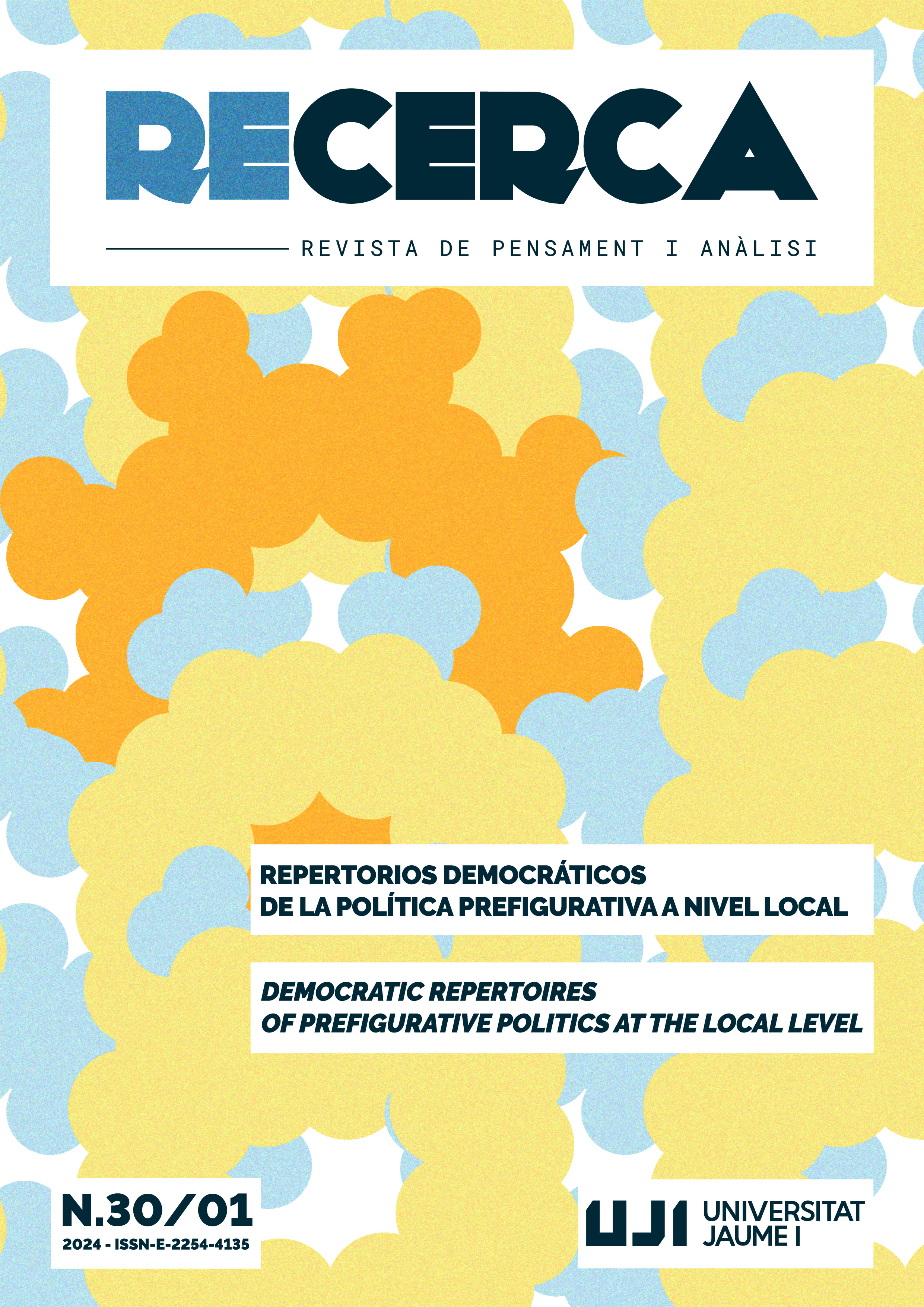A right to the news? Moral justification and legal protection of citizens’ right to information
Main Article Content
Abstract
Could citizens have a right to be offered quality news? Some argue that such a right is impracticable because the obligations it would generate would entail a de facto suppression of journalistic freedoms. In this article, I argue that this problem only affects the right to the news if conceived as an individual legal right. Yet, conceived as a moral right, citizens’ right to the news is not only compatible with journalistic freedoms but also the moral foundation of the journalistic institution itself. Moreover, I argue that citizens’ right to the news can (and should) have significant legal effects, as it imposes upon public administrations an obligation to implement measures to protect it, which I classify into direct and indirect protections.
Downloads
Article Details
References
Alexy, Robert (1993). Teoría de Los Derechos Fundamentales. Madrid: Centro de Estudios Constitucionales.
Atienza, Manuel y Ruiz Manero, Juan (1996). Las Piezas del Derecho. Teoría de Los Enunciados Jurídicos. Barcelona: Ariel.
Bull, Thomas y Corder, Hugh (2012). Freedom of and right to information. En Tushnet, Mark, Fleiner, Thomas y Saunders, Cheryl (Eds.). Routledge Handbook of Constitutional Law (219229). London: Routledge.
Carreras i Serra, Lluís de (2008). Las normas jurídicas de los periodistas: derecho español de la información. Barcelona: Editorial UOC.
Ceva, Emanuela y Ferretti, Maria Paola (2020). Political Corruption: The Internal Enemy of Institutions. New York: Oxford University Press.
Christiano, Thomas (2008). The Constitution of Equality: Democratic Authority and Its Limits. Oxford: Oxford University Press.
Christiano, Thomas (2011). An Instrumental Argument for a Human Right to Democracy. Philosophy and Public Affairs, 39(2), 142176. https://doi.org/10.1111/j.1088-4963.2011.01204.x
Cruft, Rowan (2022). Journalism and Press Freedom as Human Rights. Journal of Applied Philosophy, 39(2), 359-376. https://doi.org/10.1111/japp.12566
Cunningham, Frank (2002). Theories of Democracy: A Critical Introduction. London: Routledge.
Díez Bueso, Laura (2002). La relevancia pública en el derecho a la información: Algunas consideraciones. Revista Española de Derecho Constitucional, 66, 213-240.
Dworkin, Ronald (2011). Justice for Hedgehogs. Cambridge: Harvard University Press.
Feldman, Stephen M. (2015). Free Speech and Free Press. En Tushnet, Mark, Graber, Mark A. y Levinson, Stanford (Eds.). The Oxford Handbook of the U.S. Constitution (629-649). New York: Oxford University Press. https://doi.org/10.1093/oxfordhb/9780190245757.013.30
Fiss, Owen M. (1996). The irony of free speech. Cambridge: Harvard University Press.
Floridi, Luciano (2013). The Ethics of Information. New York: Oxford University Press.
Freedman, Des, Obar, Jonathan A., Martens, Cheryl y McChesney, Robert W. (Eds.) (2016). Strategies for Media Reform: International Perspectives. New York: Fordham University Press.
Gomis, Lorenzo (1993). La Notícia, dret humà. Barcelona: Barcanova.
González-Ricoy, Iñigo (2013). An Account of the Democratic Status of Constitutional Rights. Res Publica, 19(3), 241-256. https://doi.org/10.1007/s11158-013-9219-5
Guastini, Riccardo. (1999). Distinguiendo: Estudios de Teoría y Metateoría del Derecho. Barcelona: Gedisa.
Lebovic, Sam (2016). Free Speech and Unfree News: The Paradox of Press Freedom in America. Cambridge: Harvard University Press.
Lichtenberg, Judith (1990). Foundations and limits of freedom of the press. En Lichtenberg, Judith (Ed.). Democracy and the Mass Media: A Collection of Essays (102-135). Cambridge: Cambridge University Press.
Miller, Seumas (2009). The Moral Foundations of Social Institutions. Cambridge: Cambridge University Press.
Marciel, Rubén (2022). Democracia, desinformación y conocimiento político: algunas aclaraciones conceptuales. Dilemata, 38, 69-86. https://www.dilemata.net/revista/index.php/dilemata/article/view/412000475
Marciel, Rubén (2023). On citizens’ right to information: Justification and analysis of the demcratic right to be well informed. Journal of Political Philosophy, 30(3), 358-384. https://doi.org/10.1111/jopp.12298
Marciel, Rubén (2025). Deliberative Newsworthiness: A Normative Criterion to Promote Deliberative Democracy. Journal of Media Ethics, 40(1), 28-32. https://doi.org/10.1080/23736992.2024.2444207
Moreso, José Juan y Vilajosana, Josep María (2004). Introducción a la teoría del derecho. Madrid: Marcial Pons.
Nickel, James W. (2008). Rethinking Indivisibility: Towards A Theory of Supporting Relations between Human Rights. Human Rights Quarterly, 30(4), 984-1001. https://doi.org/10.1353/hrq.0.0046
Nino, Carlos Santiago (1989). Ética y Derechos Humanos: un ensayo de fundamentación. Barcelona: Ariel.
Ortega Gutiérrez, David (2017). El derecho a la información: balance y cuestiones pendientes. Revista de Derecho Político, 100, 671699. https://doi.org/10.5944/rdp.100.2017.20714
Ozawa, Joao V. S., Lukito, Josephine, Bailez, Felipe y Fakhouri, Luis G. P. (2024). Brazilian Capitol Attack: The Interaction between Bolsonaro’s Supporters’ Content, WhatsApp, Twitter, and News Media. Harvard Kennedy School Misinformation Review, 5(2), 114. https://doi.org/10.37016/mr-2020-137.
Persily, Nathaiel y Tucker, Joshua, A. (Eds.) (2020). Social Media and Democracy: The State of the Field and Prospects for Reform. Cambridge: Cambridge University Press.
Raz, Joseph (1988). The Morality of Freedom. Oxford: Oxford University Press.
Raz, Joseph (1995). Ethics in the Public Domain: Essays in the Morality of Law and Politics. Oxford: Clarendon Press.
Richardson, Brian (2004). The Public’s Right to Know: A Dangerous Notion. Journal of Mass Media Ethics, 19(1), 46-55. https://doi.org/10.1207/s15327728jmme1901_4
Sábada, Charo y Salaverría, Ramón (2023). Combatir la desinformación con alfabetización mediática: análisis de las tendencias en la Unión Europea. Revista Latina de Comunicación Social, 81, 17-33. https://www.doi.org/10.4185/RLCS-2023-1552
Scanlon, Thomas Michael (1978). Freedom of Expression and the Categories of Expression. Pittsburgh Law Review, 40, 519-550.
Scanlon, Thomas Michael (2013). Responsibility and the Value of Choice. Think, 12(33), 9-16. https://doi.org/10.1017/s1477175612000280
Schauer, Frederick (1983). Rights and the Right to Know. Philosophic Exchange, 14(1), 65-76.
Urías, Joaquín (2014). Principios de derecho de la información. Madrid: Tecnos.
Villaverde Menéndez, Ignacio (1995). Los derechos del público. El derecho a recibir información del artículo 20.1.d) de la Constitución Española de 1978. Madrid: Tecnos.
Villaverde Menéndez, Ignacio (2018). Artículo 20.1.a) y d), 20.2, 20.4 y 20.5. La libertad de expresión. En Alcubilla, Enrique Arnaldo y Peñalver, Jesús Remón (Eds.). Comentarios a la Constitución Española, Tomo I (581-616). Madrid: Fundación Wolters Kluwer, Boletín Oficial del Estado, Tribunal Constitucional y Ministerio de Justicia.
Waldron, Jeremy (1989). Conflicts in Rights. Ethics, 99(3), 503-519. https://doi.org/10.1086/293094
Wenar, Leif (2013). The nature of Claim-Rights. Ethics, 123(2), 202229. https://doi.org/10.1086/668707


